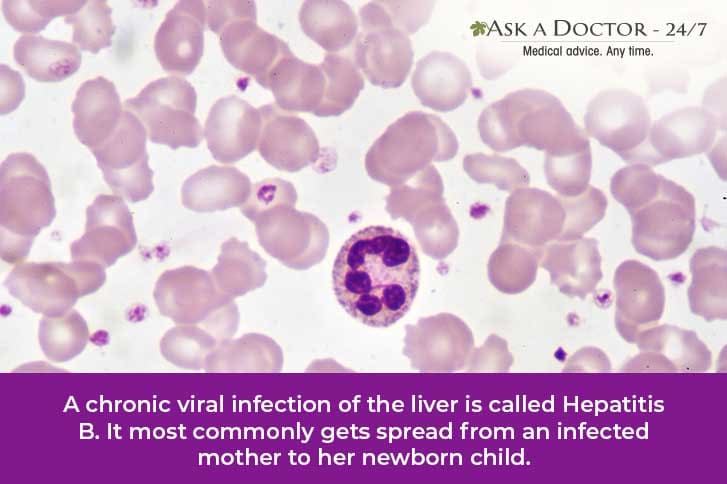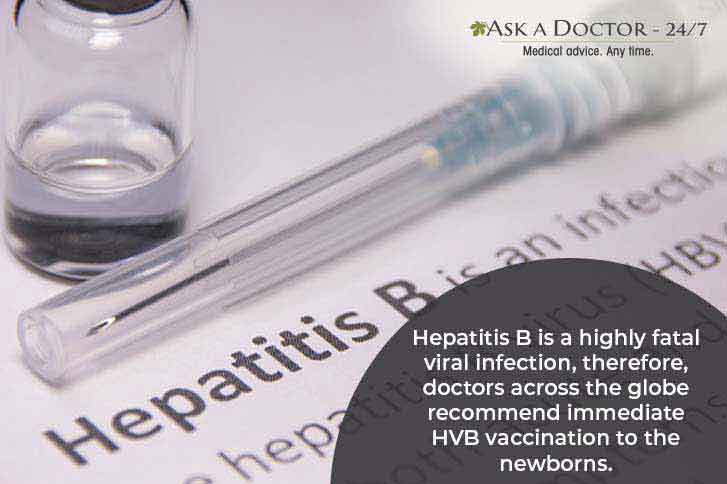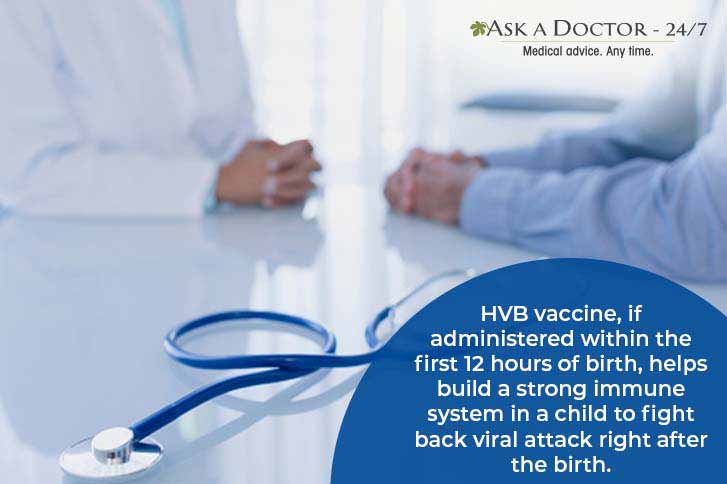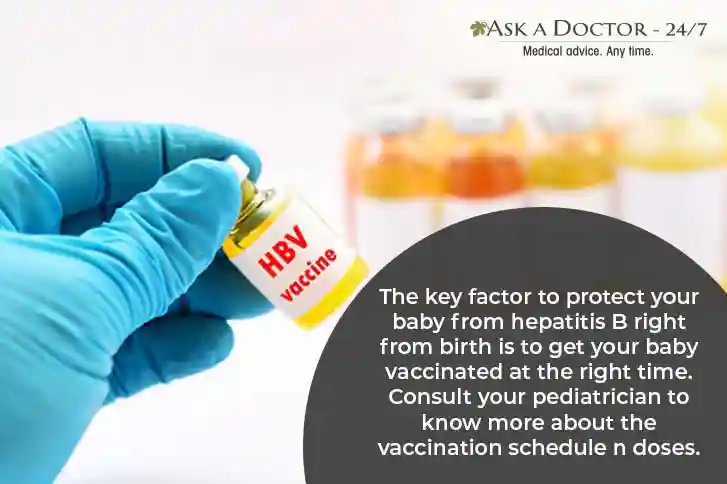Why Do Newborns Need The Hepatitis B Vaccine?
After your baby is born, two important factors need utmost priority to ensure that your baby has a healthy life. Firstly, breastfeeding, which offers tremendous amounts of nutrients which inadvertently builds the immune power in your baby to fight against harmful diseases. Secondly, immunization, which offers the possibility of avoiding some deadly diseases, which in turn pave the way for your child to live a happy and disease-free life.
Your breastfed baby needs many vaccinations on time to be protected against life-threatening diseases. Hepatitis B is one such vaccine. Let’s explore together what hepatitis B and its vaccine are and why the vaccine is an absolute necessity for your newborn.
What is Hepatitis B Infection?

Viral infection of the liver is called hepatitis. The classifications include hepatitis A, B, C, D, and E. Hepatitis A is a short-term disease. However, hepatitis B, C, D, and E can become chronic. Hepatitis B virus (HBV) commonly spreads from:
HBV can survive outside the body for 7 days. During this time, it can easily infect a person who is not protected by the hepatitis B vaccine. The incubation period of HBV is 75 days on average. However, the virus may be easily detected within 30 to 60 days post infection.
The major symptoms of Hep B infection one should watch for includes yellowing of the skin and eyes, accompanied with fever, nausea, diarrhea, vomiting, muscle and joint pain, dark urine, fatigue, and abdominal pain.
- The infected mother to the child during childbirth
- Infected blood and bodily fluids
- The re-use of needles and syringes in health centers or among people who inject drugs
- The malfunction of surgical instruments during surgeries, through tattooing or piercings
- Exposure to contaminated blood by a needle stick injury or through the usage of contaminated razors
- Unsafe sexual practices with unvaccinated or infected individuals
HBV can survive outside the body for 7 days. During this time, it can easily infect a person who is not protected by the hepatitis B vaccine. The incubation period of HBV is 75 days on average. However, the virus may be easily detected within 30 to 60 days post infection.
The major symptoms of Hep B infection one should watch for includes yellowing of the skin and eyes, accompanied with fever, nausea, diarrhea, vomiting, muscle and joint pain, dark urine, fatigue, and abdominal pain.
Why Is Hepatitis B is stated as a Serious Infection?

Hepatitis B virus (HBV) infection is a global health threat that affects the liver. This infection can cause acute or chronic hepatitis, liver cirrhosis, or hepatocelullar carcinoma, which can turn out to be fatal. The World Health Organization (WHO) records show that in 2015, nearly 257 million people had chronic hepatitis B (Hep B) infection (cirrhosis and hepatocellular carcinoma) that resulted in 887,000 deaths.
Do not panic just yet, there is a safe and effective vaccine that ensures 98-100% protection against this disease. Only in rare cases, the hepatitis B vaccine can avert the development of chronic liver conditions and even liver cancer.
Do not panic just yet, there is a safe and effective vaccine that ensures 98-100% protection against this disease. Only in rare cases, the hepatitis B vaccine can avert the development of chronic liver conditions and even liver cancer.
Why It Is A Must for Newborns to Get Hep B Vaccine?

All infants should get Hep B vaccine immediately after birth. The benefits are:
- It protects your baby from hepatitis B infection
- It reduces the risk of contracting the disease from mothers or family members who may not be aware that they are infected with hepatitis B
- It helps protect other people from contracting the disease because children with hepatitis B usually do not show any symptoms
- It prevents your baby from developing some serious illnesses, like liver disease and cancer caused by HBV
- It keeps your baby active every day and can help prevent your baby from missing school or day care
When a mother has hepatitis B, there is an additional medication that can protect the baby against hepatitis B, called Hepatitis B Immune Globulin (HBIG). HBIG builds a strong immune system in a child, which helps fight the viral attack right after birth. This vaccine is efficient when the baby receives it within the first 12 hours of birth. For optimal protection, the baby will need to complete the full series of hepatitis B vaccination.
To know more about hepatitis B and its vaccination schedule for your baby, you can talk to a pediatrician, obstetrician or gynecologist online.
What is The Hepatitis B Vaccine Dose For Newborns?

According to U.S. Centers for Disease Control and Prevention (CDC) and American Academy of Pediatrics, your baby will receive the first dose of Hep B vaccine shortly after birth. Following that, your baby will require two more doses of the vaccine for optimal protection.
Talk to your pediatrician about the next dosage of HBV vaccine while getting the first shot or prior to discharge from the birth center.
Talk to your pediatrician about the next dosage of HBV vaccine while getting the first shot or prior to discharge from the birth center.
The dosage schedule includes:
- 1st Shot - In the delivery room or within the first 12- 24 hours after birth
- 2nd Shot - At least one month (or 28 days) after the 1st shot
- 3rd Shot - At least 4 months or 16 weeks after the 1st shot (or at least 2 months after the 2nd shot); your baby’s age should be a minimum of 24 weeks at the time of the 3rd shot
In many countries, a pentavalent vaccine is given for babies which protects against 5 types of diseases, including hepatitis B. Unfortunately, the first dose of pentavalent vaccine is given only at 6 weeks, so your child is not protected at birth against HBV with this vaccine. Your baby should receive a monovalent hepatitis B vaccine for complete protection from birth.
Hep B vaccine is considered to be crucial for the safety of a newborn. Take no chances, ensure that your little one gets the hepatitis B vaccine 'IN TIME' as the decision not to vaccinate your baby may put their life at risk.
To know more about Hepatitis B and other liver diseases you can consult an online Internal Medicine Specialist now!
Recent Questions


